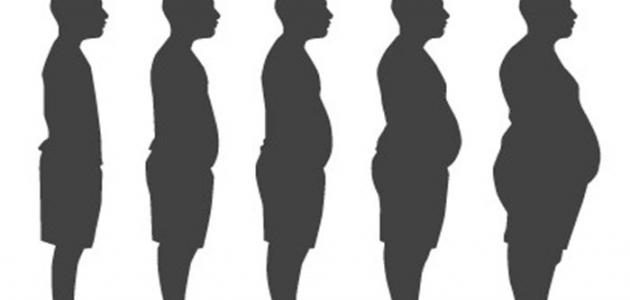Each of us aspires to get a proper shape and good health, as the ideal weight benefit not only in aesthetics but also to maintain the general health of the joints and spine, ease of mobility and agility, and there are many tools used to determine the appropriate weight, but that The most widely used and accurate body mass index (BMI) is recognized by the National Institute of Health and the World Health Organization as the best standard for the measurement of obesity, which is divided by weight in kilograms per square meter in length and is given by the following equation:
- Body mass index (BMI) = Weight (kg) / square Person length (m).
- Let’s take an example: A person weighing 75 kg and a length of 1.62 m, the body mass index in this case is: 75 ((1.62 × 1.62), ie (28.6).
After performing this simple calculation we compare the result with the natural indicators according to the following classification:
| BMI | The result |
|---|---|
| Less than 18.5 | Thin |
| 18.5-24.9 | Perfect weight |
| 25-29.9 | Overweight |
| 30 -39.5 | Obesity |
| 40 and above | Excessive obesity |
- When the result is 40 and above, the person is at high risk for heart disease, hypertension and diabetes.
Considerations
- The ideal weight of children is not calculated using this indicator, but there are other tables for their age.
- The weight of pregnant women is not subject to this indicator.
General tips for maintaining ideal weight
It may not be difficult to lose weight and lose a kilo of grams, but actually lies in maintaining the ideal weight after the loss of excess fat, many of us follow a successful diet and once that gets the result until his body to regain weight, here are some simple tips related to Change and improve the overall lifestyle:
- Exercise continuously and continuously.
- Monitor the calories a person gains for those who lose them.
- A person should not shop around hungry.
- Eating a snack every four hours is better than eating two fat meals, for example.
- Replace the soft drink with water because it contains a large percentage of sugar.
- Avoid smoking as a hindrance to metabolic processes (demolition and construction).
- Do not sleep after eating, as the levels of fat burn during sleep.
- Do not neglect breakfast because it has the effect of feeling full during the day.
- Eat fruits and vegetables because they contain a large percentage of fiber.
- Natural juice is not artificially industrialized.
- Do not eat food in front of television, it makes you eat an unlimited amount and may exceed the amount of what your body really needs.
- Avoid as much food as you can for calorie-rich sauces.
Figures and statistics
- A study in Europe in 2013 involving 288,498 people showed that inactivity leads to weight gain, especially in the abdomen.
- According to the World Health Organization, more than 1.6 billion people worldwide are obese.
- In 2008, expenditures associated with obesity were estimated at $ 147 billion, and health care costs for obese people were $ 1429 more than normal weight.



